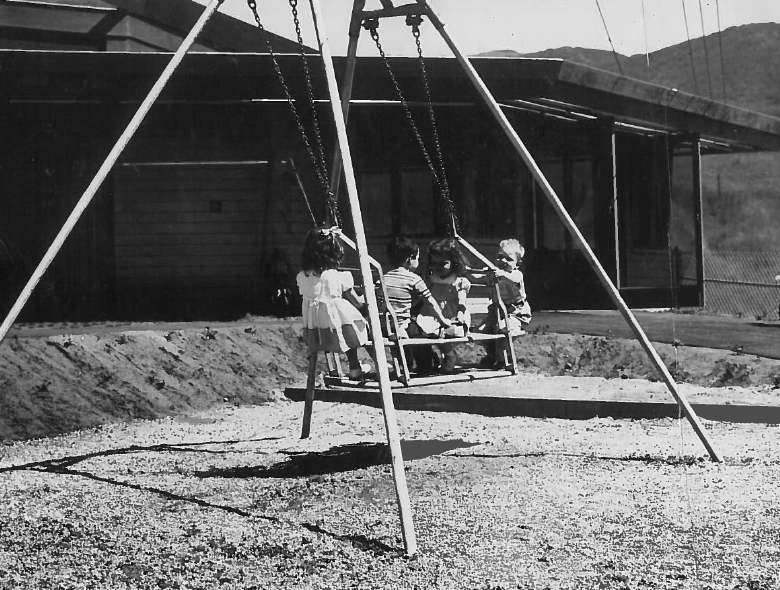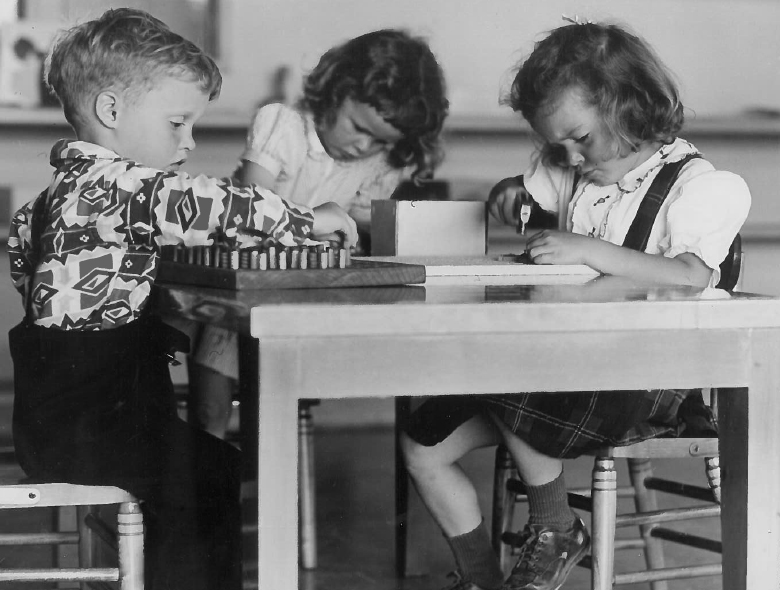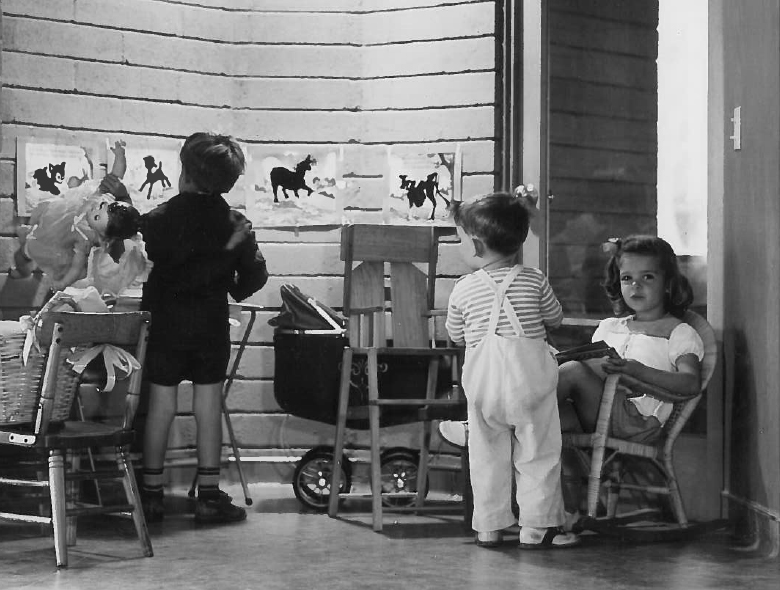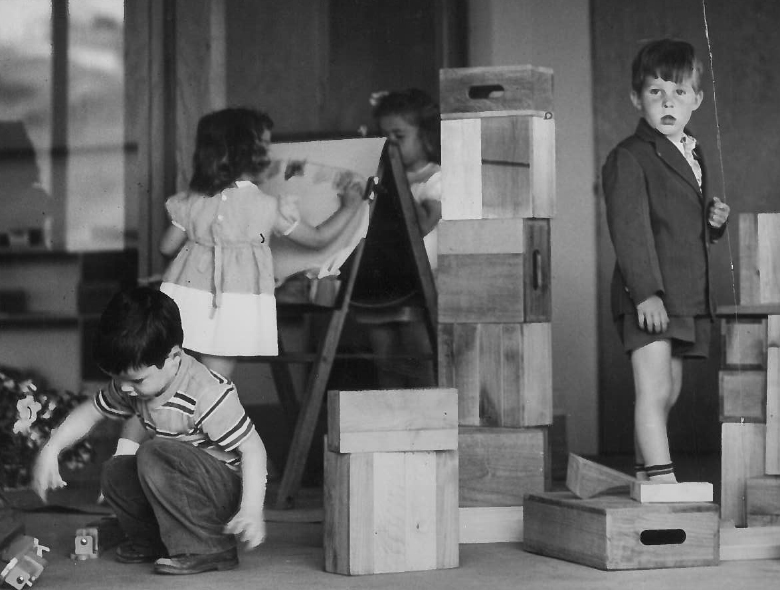In a nurturing environment, children learn to communicate their feelings, reflect on their wishes, and develop their own relationships with peers and adults. These emotional interactions are the foundation of a child’s intellectual abilities. In a structured and predictable environment, a child is empowered to learn that they have good ideas and that they can affect change. This child will believe that they belong and can contribute. The child is encouraged to make choices and learns that there are consequences resulting from these choices. As children make choices and learn about consequences, they begin to develop the understanding that they are responsible for their own thoughts, feelings and actions. In this environment, the children sees themselves as competent and worthy of happiness.
Trust & Security
Trust and security are the basis of any child’s mental health. At Hill & Dale, we believe that the first stage of developing a relationship with a child is to provide opportunities for the parents and child to develop trust in the educators at the Center. This relationship starts with Hill & Dale’s My Family and Me program. This is a discussion group for parents and a playgroup for children. Families learn about early childhood development and explore Hill & Dale’s philosophy of early learning and family development with our educators and other parents.
Transitioning
When a child is enrolled in one of our learning center programs, an educator will be that child’s Primary Caregiver. By developing this trusting relationship, the child will feel secure as they learn the routines and structure at the Center. This reassures the children that their needs will be met and that they will be protected and cared for at the Center. During this transition time, one of the child’s parents stays at the Center, encouraging their child to develop trust in their new Primary Caregiver. It is important at this transition time that the parents see the Primary Caregiver as a support for the parent as well as for the child. We want the parent to see us as a member of their team helping them be the parent they want to be. This transition time also provides the parent an opportunity to observe how we interact with their child and to develop a trusting relationship with the adults in the Center. During this transition time the Primary Caregiver will also make a visit to the family’s home. This visit is another way for the child, parent, and Primary Caregiver to strengthen the connection between home and Hill & Dale.
Team-Teaching
Once the child has established a relationship of trust with their Primary Caregiver, we have found that most children enjoy developing relationships with other educators. These extended relationships are similar to the relationships your child develops with other members of your family (grandparents, aunts, uncles, etc). To support the development of relationships with other educators at Hill & Dale we team-teach. We plan for the children to spend time with each of the educators in the team for different curriculum experiences, circles, and discussion groups. This helps the children see Hill & Dale as a community that is safe and supportive. It also helps children develop skills when dealing with adults who have different personalities, cultures, and languages.
Children build security and trust from nurturing relationships with parents and educators as well as maintaining structure and routine. It is important for children to be confident that their needs will be met. Structure for daily activities provides predictability. A Hill & Dale child always knows when it is snack-time, lunchtime, naptime, group time, and open play time. Within this context, they are able to make choices for themselves and take responsibility for the outcome of those choices.
We believe that the parents and educators in a child’s life need to provide different kinds of learning approaches at different times. Hill & Dale utilizes the following three approaches:
Creative Approach
The creative approach is built around play. The child sets their own goals and discovers their own procedures. During playtime, the parent and educator have a permissive attitude. The adults appreciate the child’s efforts, show interest, and are enthusiastic, watchful and protective. In this approach, the child feels satisfaction, success, and pleasure. It fosters imaginative, self-directing, adventurous attitudes leading to independence and enthusiasm.
Guidance Approach
The guidance approach is formed around relationships and feelings. The adult provides support for the child to deal with emotions and situations that arise in relationships (often when life presents struggles or challenges). The adult’s role is to be friendly, suggesting, helping, informing, encouraging and allowing the child to deal with the consequences of mistaken behavior. In this approach, the child will develop purpose, happiness, and security.
Conformity Approach
The conformity approach is based on routine. The parent or educator’s role is directive, giving the goals and procedures to the child. The adult is consistent, definite, factual, and concerned. The adult is directive in setting the routines, such as those at circle time, nap time, or meal time. It’s important that the goals set for the child and the procedures to achieve them are developmentally appropriate. In this approach, the child feels satisfaction, success, and pleasure when they have reached a goal. It fosters cooperation, responsibility, self-esteem, dependence, trust, respect and warm feelings for adults.
The educators provide an environment rich with materials and opportunities to create and explore. The adult is permissive in the play environment, watchful, protective, showing interest and enthusiasm. This is when the child sets their own goals and discovers their own procedures. Play gives children an opportunity to practice and experiment with what they know as they imagine and create new and deeper understandings of how the world works.
A child at play is like a scientist doing research. If children are in charge of their own play, they will be thinking, imagining, experimenting, exploring and learning through their own senses. At Hill & Dale, we structure our day so that the children have long periods to play and to make their own decisions regarding what and who to play with. We provide many hours of outside playtime; we believe it is vital for all children to be comfortable outdoors and to develop a love of our Earth.










